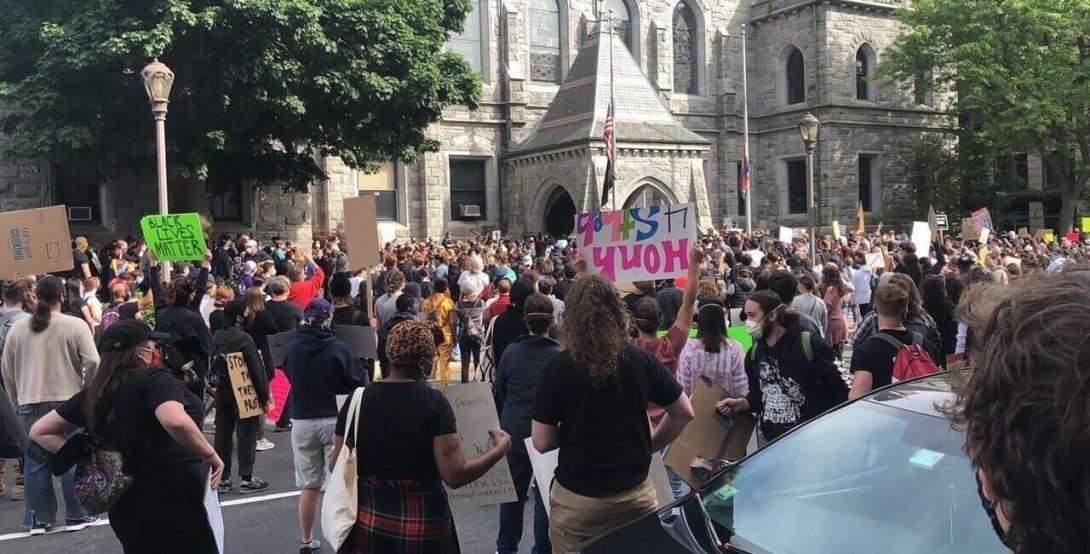How the Internet Birthed an Activist

Yesenia Perez-Algarin
On June 2, my 29-year-old son Joshua and I attended the 413 Boricuas: Solidarity March Against Police Brutality in Holyoke, Massachusetts. The last time Josh and I attended anything political together, he was five years old: I brought him with me to the polls during the 1996 presidential election.
We attended the protest to show solidarity with the Black Lives Matter movement’s efforts to end police violence against the Black community. The march was well organized, highly attended and extremely peaceful. I learned about it through a colleague who shared the Facebook event with me. It’s never been clearer to me how important online organizing is at this very moment.
The police murder of George Floyd spurred something in my son to take action. This wasn’t the first time in his lifetime that he’s witnessed a Black man or woman murdered at the hand — and in this case, the knee — of a police officer.
But the amount of information that flooded the internet in the last two weeks — from the murder itself to the peaceful protests to the cries of pain and hurt coming from our Black brothers and sisters — had a dramatic impact on him. While I’d like to think that my own past activism played a small role, I believe that his activism was birthed because of our access to the internet and his engagement with social media.
Social media and online organizing are forces to be reckoned with. They open the doors for Black and Brown communities to fight back and be heard. We become leaders, organizers, activists and even journalists. We’re able to share our stories and create our own narratives that reflect our reality to combat the lies and propaganda that the mainstream media tend to report. The internet provides so many opportunities for communities to unite and become digital freedom fighters: fighting for freedom via the digital realm while also fighting for the freedom to access the digital realm.
But there are still so many communities that can’t join the digital freedom fighters of today because to access any social-media platform you need access to the internet, whether that’s through a data plan or broadband connection. And that access is not always affordable or accessible to many of our low-income Black and Brown communities. This means their voices are silenced in the critical conversations and activism taking place today, in this very moment.
That’s why I take such pride in working for Free Press. Media and technology are essential to our democracy. We fight to ensure they’re used for justice. And during these really heavy times I look to our leadership for assurances that Free Press will not stop fighting for communities being attacked and killed.
Right now we’re fighting to get everyone connected to the internet and making sure they can stay online. This is especially crucial now as unemployment has soared and people need affordable internet at home to access lifesaving information.
Joshua and I talked about what stood out for us most from this experience. For him it was seeing the community come together in this way in the midst of a pandemic: people of all ages and races who, perhaps like him, were having a tough time in the days leading up to the march. It was therapeutic for him to be around like-minded hearts and it felt like the right step toward healing.
For me, the step toward healing came from a specific moment, one where the minister reminded me that I could always turn to the Bible, especially in times of crisis. And both Josh and I affirmed that this is only the beginning of our commitment to doing the ongoing work needed to fully support the Movement for Black Lives.
If you want to learn more about how Free Press is responding to the moment, visit us at freepress.net. And please consider making a donation that will enable us to help our Black and Brown communities to not only survive but thrive.